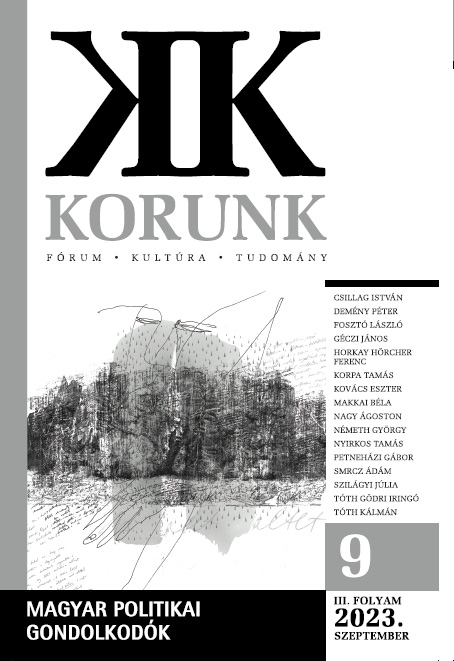A nyugat-európai modernizáció tapasztalatának hatása Gorove István politikai gondolkodására
The Influence of the Experience of Western-European Modernization on the Political Thought of István Gorove
Author(s): Kálmán TóthSubject(s): Political history, 19th Century
Published by: Korunk Baráti Társaság
Keywords: István Gorove; classical liberalism; modernization; progress; freedom; industrial capitalism; political thinking; common good; Great Britain; France; Hungary
Summary/Abstract: István Gorove (1818-1881) was a well-known and respected Hungarian politician, writer and political thinker of the 19th century. As a representative of the classical liberal paradigm, he believed in the idea of inevitable progress, but he was also aware of the danger of uncritical imitation of economic, social and political phenomena. In his book Nyugot. Utazás külföldön (West. A journey abroad, 1844) he recollected the experiences of his journey to Western Europe in 1842-43. In my study, I examine his reflections on some of his politically relevant experiences he presented in his book, and underline their influence on key features of his political thought. The key reference point of his diagnostic analysis of British and French society and political culture is the concept of the common good with a special focus on their implications for the common good of the Hungarian political community. According to him, technological innovation and economic growth do not necessarily lead to a more just distribution of goods, and so he warned the political elites of the Habsburg Empire and the Kingdom of Hungary to learn from the situation in England, as from the perspective of the common good he found it necessary to do everything possible to prevent mass poverty when industrial capitalism would inevitably reach this region in the upcoming decades. In his communitarian political thought the central value of classical liberalism, i.e. individual freedom, is closely intertwined with the freedom of a national community, based on mutual rights and obligations. In his view, individual freedom cannot be realized without the freedom of the community, the nation. The individual good of the citizens can only be developed on the ground of the common good of the national community.
Journal: Korunk
- Issue Year: 2023
- Issue No: 09
- Page Range: 45-53
- Page Count: 9
- Language: Hungarian

